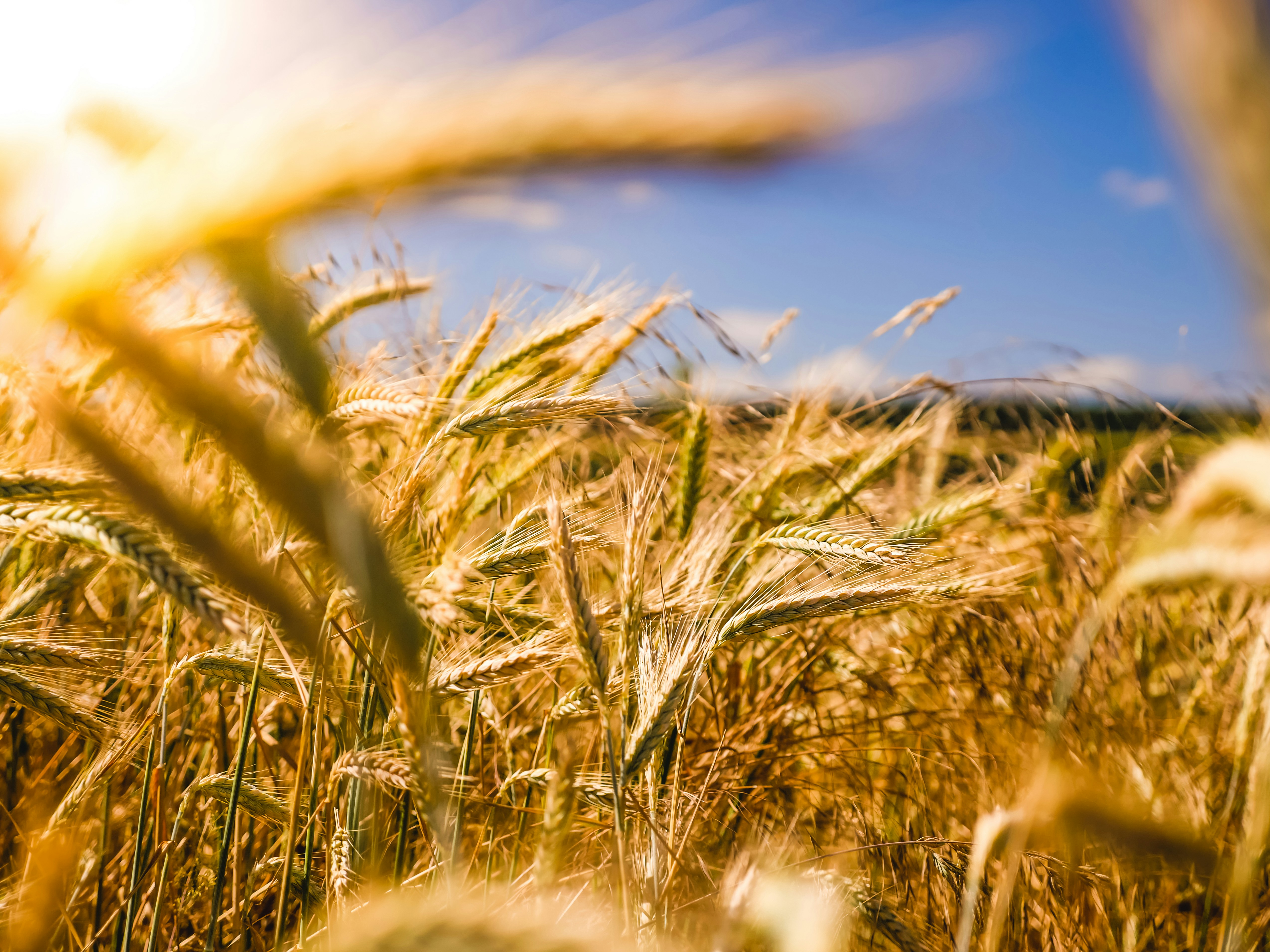Best practices
11 March 2025
Lantmännen: Advancing Sustainable Bioenergy and Agri-Food Innovation
Best practices
11 March 2025
Partnerships
Regenerative Green Transition
Proximity and social economy
+21 more
Login / create an account to be able to react
-
22

Lantmännen is a leading agricultural cooperative in Northern Europe, owned by 17,000 farmers, and a key player in sustainable bioenergy, agri-food, and biorefining. With a commitment to environmental responsibility, Lantmännen integrates circular economy principles into its operations, reducing overall resource consumption while increasing reliance on renewable energy. Through its Energy Sector, the cooperative is one of Sweden's largest bioenergy producers, focusing on ethanol fuel, protein feed, and starch products, among other sustainable goods. The cooperative also produces lubricants, alkylate petrol, beta-glucan, oat protein, and other bio-based materials, offering sustainable alternatives to fossil-based products and supporting the transition to a low-carbon economy. Lantmännen’s approach serves as a model for the agri-food sector and the social economy, showcasing how cooperatives can drive greener industrial practices through innovation, strategic investment, and a strong commitment to sustainability.
EURICSE
Topics
EU-27
Sweden
Company with 250 or more employees
Financial Institutions and Investors
International Organisations
Local Authorities
National authorities
NGOs / Non-profits
Regional Authorities
SMEs (a company with less than 250 employees)
Social Economy Entity
Trade Unions
-
Thematic area
-
-
Partnerships
-
Regenerative Green Transition
-
-
Interlinkages with other sectors
-
-
Proximity and social economy
-
Agri-food
-
Energy-renewables
-
Mobility, transport, automotive
-
-
Action areas and keywords
-
-
Buy social
-
Circular Economy
-
Clusters (including Cluster of social and ecological innovation)
-
Future workplaces
-
Greening infrastructures and business operations
-
Innovation
-
Innovation as enabler for green transition and business development in the social economy
-
Local employment
-
Local Green Deals, green business communities and citizens’ initiatives
-
New business models
-
New business models – the platform economy
-
Responsible (Public) Procurement
-
-
Ecosystem focus
-
-
Proximity economy
-
Social economy
-
-
Scope of activity
-
-
International
-
Local/neighbourhood
-
National
-
Regional
-
Share
Lantmännen operates a highly sustainable and resource-efficient business model, focusing on the production of bioenergy, food products, and industrial raw materials from grain and other agricultural inputs. A key feature of its operations is its biorefineries, where agricultural residues are processed into ethanol, proteins, starch, and other bio-based products. Lantmännen's bioethanol production achieves a carbon footprint more than 95% lower than conventional fossil fuels, according to its internal sustainability assessments.
The biorefineries in Norrköping, Lidköping, and Kimstad highlight Lantmännen's innovation in sustainable production:
- Norrköping: The Nordic region’s largest ethanol producer converting grain into biofuels and protein-rich animal feed.
- Lidköping: Specialising in wheat processing for starch, gluten, vodka and feed, playing a crucial role in Sweden’s food and beverage industry.
- Kimstad: Focused on oat-based functional foods, producing beta-glucan and oat protein for health-conscious industries.
Lantmännen also leads in responsible procurement and cluster development within the bioenergy and agri-food industries. Its efforts in heat recovery, technological innovation, and energy efficiency ensure continuous progress towards sustainability targets. The cooperative actively engages with stakeholders, from farmers to policymakers, advocating for the role of bio-based solutions in the green transition.
Lantmännen’s Sustainability Impact:
- GHG Emissions Reduction: Since 2019, Lantmännen has achieved a 25% reduction in Scope 1 & 2 greenhouse gas emissions, demonstrating significant progress towards its 2030 sustainability targets.
- Renewable Energy Commitment: As of 2023, 51% of Lantmännen's total energy consumption comes from renewable sources, with six bakeries running on 100% renewable energy and several other exceeding 89%.
- Sustainable Ethanol Production: Lantmännen Biorefineries produces 230,000 m³ of ethanol annually, including both grain-based and second-generation bioethanol, significantly reducing reliance on fossil fuels.
- Green Energy Expansion: Investments in wind, solar, and water energy sources are accelerating Lantmännen’s shift to a low-carbon energy system.
Lesson Learned:
Maximising Resource Efficiency through Circular Economy Practices
Lantmännen's model demonstrates how agricultural cooperatives can transform waste into valuable resources. By refining agricultural residues into bio-based products such as ethanol, proteins, and starch, the cooperative enhances efficiency while reducing environmental impact. This approach not only minimises waste but also strengthens the sustainability of food and energy production.
The Strategic Role of Renewable Energy in Decarbonisation
Lantmännen's sustained investments in renewable energy, including wind, solar, and water sources, highlight the importance of a structured transition away from fossil fuels. The cooperative’s commitment to renewable energy procurement has led to significant emissions reductions, with six of its bakeries already operating entirely on renewable energy. This underscores the feasibility of large-scale industrial decarbonisation through targeted investments.
The Power of Cooperatives in Driving Systemic Change
As a cooperative owned by 17,000 farmers, Lantmännen exemplifies how collective action can accelerate the green transition. Through partnerships with policymakers, research institutions, and industry stakeholders, the cooperative has fostered innovation in sustainable bioenergy and agri-food production. This collaborative approach enables the scaling of best practices that might be challenging for individual enterprises to implement alone.
Innovation as a Driver of Sustainability and Competitiveness
Lantmännen’s continuous investment in research and technological improvements has positioned it as a leader in sustainable biorefining. The cooperative’s production of second-generation ethanol, alongside oat-based functional ingredients like beta-glucan and oat protein, reflects a commitment to both environmental sustainability and economic viability. This case illustrates how innovation in product development and production processes can drive both ecological and commercial benefits.
Lantmännen is one of many examples of how social economy entities can drive transformative change in the agri-food and energy sectors while delivering tangible benefits for farmers, local communities, and the environment.
Comments (0)
See also
-
97
PSE Platform Ambassador highlight: Flaviano Zandonai and National Consortium CGM
- Categories
- Partnerships Regenerative Green Transition Skills +68 more
-
11
PSE Platform Ambassador highlight: Jaume Puigpinós Serra, Taula del Tercer Sector
- Categories
- Partnerships Regenerative Green Transition Skills +68 more
-
58
Shape the Future of the EU Textiles Ecosystem Platform: Participate in the Needs Assessment Survey
- Categories
- Partnerships Regenerative Green Transition Skills +68 more




